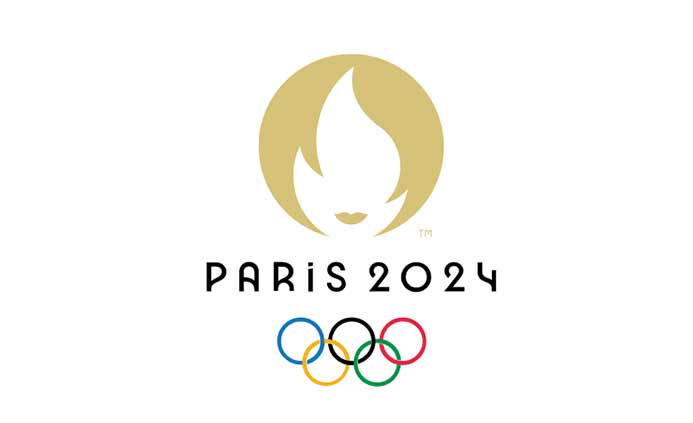From the debut of a new Olympic sport to a groundbreaking new emblem, here are the top five things to know about the Paris 2024 Olympic Games.
On 8 August, the Tokyo 2020 Olympic Games came to an end with the Closing Ceremony, which included the handover of the Olympic flag from the Governor of Tokyo, Yuriko Koike, to the Mayor of Paris, Anne Hidalgo.
And while the Paris 2024 Olympic Games may still be a few years away, it’s never too early to get excited about the Games of the XXXIII Olympiad!
With that in mind, here are the top five things to know about the Paris 2024 Olympic Games, including a brand new sport, a venue in the Pacific, emblem design, and more!
The centenary of the Paris 1924 Olympic Games
In 2024, Paris will become just the second city to host the Olympic Summer Games three times after London (which staged the 1908, 1948 and 2012 Olympic Games).
The City of Lights first hosted the Olympic Games in 1900, four years after the multi-sport event was resurrected in Athens after being banned by Roman Emperor Theodosius I some 1,500 years earlier.
No opening or closing ceremonies were held at the 1900 Olympics, which featured female competitors for the first time in Olympic history, as well as other unique events including ballooning, underwater swimming and cricket.
Paris hosted the Summer Olympics again in 1924, becoming the first city to host the Olympics twice. While the Opening Ceremony of the 1924 Olympics was held on 5 July, some competitions began on 4 May, with the Closing Ceremony held on 27 July.
100 years later, on 26 July 2024, Paris will officially welcome the world to the Olympic Games for a third time, while these Olympics will be the sixth held in France (in addition to the three Summer Olympics mentioned above, France has also staged the Winter Olympics on three occasions: Chamonix 1924, Grenoble 1968 and Albertville ‘92).
The Olympic debut of breaking
The 2024 Summer Olympic program is scheduled to feature 32 sports encompassing 306 events; among these sports is breaking, which will make its Olympic debut.
Breaking is a competitive form of breakdancing that includes footwork and athletic moves like back or head spins. Athletes (known as b-boys and b-girls) are judged on a number of criteria during their routines, including technical skill, creativity, style, speed, strength, rhythm and agility.
Breaking was a hugely popular event at the 2018 Summer Youth Olympics in Buenos Aires, and in December 2020 the sport was officially added to the programme for Paris 2024 along with surfing, skateboarding and sport climbing (which made their Olympic debut at Tokyo 2020).
Speaking in a press conference following the International Olympic Committee’s (IOC) executive board meeting to confirm the Paris 2024 programme,
IOC president Thomas Bach said that the addition of the sports will make the Olympic Games “more gender-balanced, more youthful and more urban.
"We have had a clear priority, and this is to introduce sports which are particularly popular among the younger generations. And also to take into account the urbanization of sport."
Olympic surfing in Tahiti
Tahiti— the largest island in French Polynesia, an overseas collectivity of France — will host the surfing competition at Paris 2024.
Tahiti was chosen as the venue over four potential locations in mainland France (Biarritz, Lacanau, Les Landes and La Torche), and when the competition does begin in 2024 — 15,700 kilometres from Paris — it will break the record for the farthest Olympic medal event to be held outside of the host city.
At the 1956 Melbourne Olympic Games, equestrian events were moved from the Australian city due to quarantine laws and were instead held five months earlier in Stockholm, Sweden.
The International Surfing Association (ISA) supported the decision, with ISA President Fernando Aguerre telling the BBC the choice of Tahiti as an Olympic venue “is a testimony to the Paris 2024 spirit of creativity and innovation”.
Paris 2024 Olympic and Paralympic emblem
When the emblem for Paris 2024 was unveiled in 2019, it marked an iconic moment in the history of the Olympic Games and Paralympic Games. For the first time ever, the same emblem would be used for both competitions.
Described as the 'face' of the Games, the emblem is a unity of three iconic symbols: the gold medal, the flame, and Marianne — a cherished symbol of the revolution and the people of France.
"Firstly, this logo for the first time in history, we wanted it to be the same for the Olympic and Paralympic Games,” said Paris 2024 Olympics bid leader and three-time Olympic canoeing champion Tony Estanguet.
“It's historic, it's to say that we have the same ambition for these two events, to put these Olympic and Paralympic athletes on the same level and to celebrate the Games in the same way, whether it be in terms of celebration or heritage.”
You can learn more about the Paris 2024 emblem here.
A marathon for all
In another first for the Olympic Games, a mass participation marathon open to amateur athletes will take place on the same day as the elite event. The ‘public’ marathon wouldn’t start at the same time as the elite competition, but athletes will run on the same course and in the same conditions as the Olympic event, according to Estanguet.
A statement on the Paris 2024 website reads: “With this event [the mass participation marathon], Paris 2024 is inviting people across France to be inspired by the athletic mindset and Olympic values, and integrate them into their day-to-day lives.
“To enable as many people as possible to share this outstanding experience, several different race formats will be offered so that everyone, whether they are an experienced athlete or beginner, able-bodied or disabled, young or not so young, will be able to enjoy this truly exceptional moment.”

